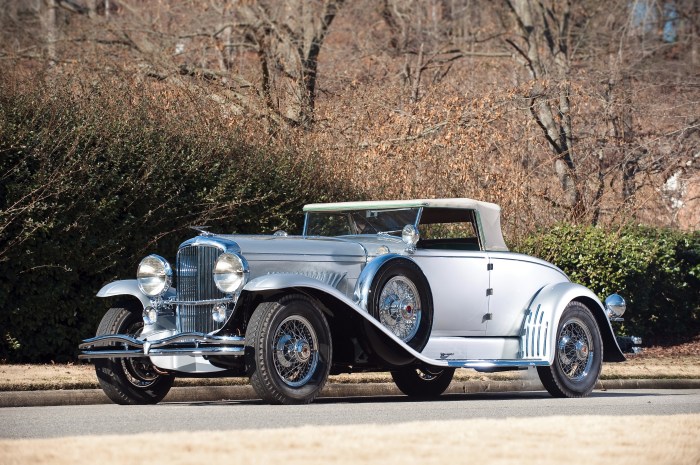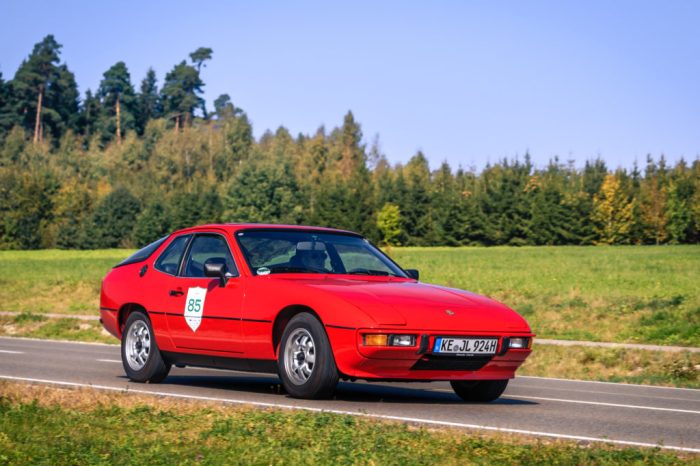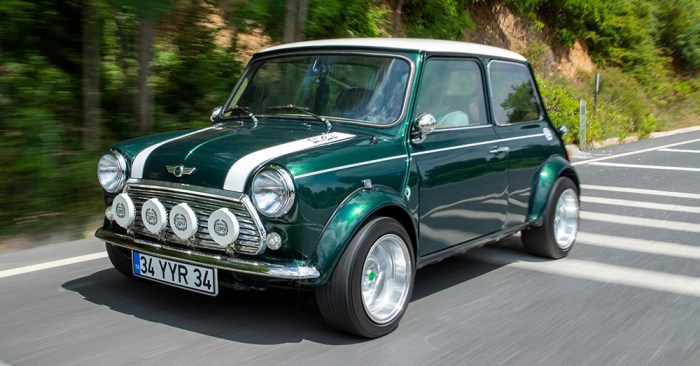Best classic cars to invest in: a topic that stirs excitement in the hearts of car enthusiasts and investors alike. Classic cars embody the rich tapestry of automotive history, captivating us with their timeless designs and enduring appeal. Join us as we delve into the fascinating world of classic car investments, exploring their historical significance, investment potential, market trends, and the intricacies of ownership.
From the iconic Ford Model T to the sleek Ferrari 250 GTO, classic cars have left an indelible mark on the automotive landscape. As investments, they offer a unique blend of passion, nostalgia, and financial rewards. But navigating the classic car market requires a keen eye for value and an understanding of the factors that drive demand and appreciation.
Historical Significance

Classic cars have left an indelible mark on the tapestry of automotive history, embodying the ingenuity, passion, and technological advancements that have shaped the industry. From the groundbreaking Ford Model T to the iconic Rolls-Royce Phantom, these vehicles have played a pivotal role in defining our understanding of transportation and personal mobility.
Explore the different advantages of Classic car insurance quotes that can change the way you view this issue.
Beyond their practical value, classic cars have become symbols of cultural heritage and nostalgia. They evoke memories of simpler times, transport us to different eras, and serve as tangible reminders of our collective past. Their preservation and restoration are not merely exercises in vanity but rather acts of preserving our shared history.
Examples of Iconic Models
Throughout history, numerous classic car models have emerged as icons, embodying the spirit of their respective eras and leaving an enduring legacy. Among the most notable examples are:
- Ford Model T: The first mass-produced automobile, revolutionizing transportation and making car ownership accessible to the masses.
- Chevrolet Corvette: An American sports car that has become synonymous with performance, style, and innovation.
- Rolls-Royce Phantom: A symbol of luxury, elegance, and craftsmanship, revered by royalty and celebrities alike.
- Volkswagen Beetle: A simple and affordable car that became a global phenomenon, capturing the hearts of millions worldwide.
- Jaguar E-Type: A British sports car renowned for its sleek design, speed, and agility, often hailed as one of the most beautiful cars ever made.
Investment Potential
Classic cars have emerged as a lucrative investment opportunity, offering potential for significant returns. Their value is influenced by various factors, including:
- Rarity:Cars produced in limited numbers or with unique features tend to command higher prices.
- Historical significance:Cars associated with iconic events, celebrities, or cultural milestones hold special value.
- Condition:Well-maintained and unrestored cars are generally more valuable than those in need of repairs or modifications.
- Demand:The popularity and desirability of a particular model influence its market value.
- Appreciation potential:Classic cars that exhibit strong historical significance, rarity, and demand have the highest potential for appreciation.
Risks and Rewards
Investing in classic cars involves both risks and rewards. Risks:
- Market volatility:The value of classic cars can fluctuate depending on economic conditions and market trends.
- Maintenance costs:Classic cars often require specialized maintenance and repairs, which can be expensive.
- Storage and insurance:Proper storage and insurance are essential to protect the value of classic cars, adding to the investment costs.
Rewards:
- Appreciation potential:Well-chosen classic cars have the potential to appreciate significantly in value over time.
- Tangible asset:Classic cars represent a tangible asset that can provide emotional and aesthetic satisfaction.
- Investment diversification:Classic cars can diversify an investment portfolio, reducing overall risk.
Investing in classic cars requires careful research, a long-term perspective, and a passion for the hobby. By understanding the factors that influence their value and managing the risks involved, investors can reap the potential rewards of this unique asset class.
Market Trends

The classic car market has experienced significant growth in recent years, driven by a combination of factors. These include rising disposable incomes, increased interest in nostalgia, and a growing awareness of the potential investment value of classic cars.
The demand for classic cars is also being fueled by the growing popularity of car shows, rallies, and other events that celebrate these vehicles. These events provide opportunities for enthusiasts to connect with other collectors and share their passion for classic cars.
Factors Driving Demand
- Rising disposable incomes
- Increased interest in nostalgia
- Growing awareness of the potential investment value of classic cars
- Popularity of car shows, rallies, and other events
Factors Driving Supply
- Limited production of classic cars
- Aging population of classic car owners
- Increased availability of classic cars through online marketplaces
Emerging Trends
- Growing interest in electric classic cars
- Increased demand for classic cars from emerging markets
- Use of blockchain technology to track and authenticate classic cars
Future Investment Opportunities
The classic car market is expected to continue to grow in the coming years. As the number of classic cars on the road continues to decline, the value of these vehicles is likely to increase.
Investors who are looking for a potential investment opportunity may want to consider investing in classic cars. However, it is important to do your research and understand the risks involved before investing in any classic car.
Specific Car Models: Best Classic Cars To Invest In
Classic cars are not just a passion for car enthusiasts but also a potential investment opportunity. The value of classic cars has been steadily increasing over the years, making them a sought-after asset class. However, not all classic cars are created equal.
Some models have proven to be more lucrative investments than others.
Investment Potential of Different Classic Car Models
The following table compares the investment potential of different classic car models based on their make, model, year, value range, and key features:
| Make | Model | Year | Value Range | Key Features |
|---|---|---|---|---|
| Ford | Mustang | 1965 | $50,000
|
V8 engine, iconic design, limited production |
| Chevrolet | Corvette | 1967 | $100,000
|
Powerful engine, sleek design, high-performance capabilities |
| Jaguar | E-Type | 1961 | $150,000
|
Elegant design, powerful engine, limited production |
| Ferrari | 250 GTO | 1962 | $50 million
|
Legendary race car, extremely rare, high performance |
| Porsche | 911 | 1973 | $50,000
|
Iconic design, reliable engine, strong performance |
Restoration and Maintenance
Preserving the value of classic cars heavily relies on meticulous restoration and maintenance. These processes ensure the preservation of a classic car’s authenticity, performance, and aesthetic appeal, contributing to its desirability among collectors and enthusiasts.
Restoration involves bringing a classic car back to its original condition, using period-correct parts and techniques. This process requires specialized knowledge, skills, and access to original equipment manufacturers (OEM) parts or high-quality reproductions. The cost of restoration can vary significantly depending on the car’s condition, the extent of work required, and the availability of parts.
Finding Reputable Restoration Shops
When seeking a restoration shop, it’s crucial to conduct thorough research, seek recommendations from classic car clubs or forums, and visit potential shops to assess their expertise, facilities, and reputation. Look for shops with a proven track record of successful restorations, skilled technicians, and a commitment to preserving the car’s originality.
Understand how the union of Classic car restoration costs can improve efficiency and productivity.
Maintaining a Classic Car
Once restored, regular maintenance is essential to preserve the car’s condition and prevent costly repairs. This includes routine servicing, such as oil changes, fluid checks, and tire rotations, as well as more specialized maintenance tasks like carburetor tuning, brake inspections, and electrical system checks.
It’s advisable to establish a relationship with a qualified mechanic who understands classic cars and can provide expert advice and maintenance services.
Insurance and Ownership Considerations

Classic car ownership brings unique insurance and legal considerations that differ from regular vehicles. Understanding these factors is crucial for protecting your investment and ensuring a smooth ownership experience.
Classic car insurance policies typically cover agreed value, which is the predetermined value of the car agreed upon by the insurer and the owner. This ensures that the car is insured for its true worth, rather than its depreciated value.
Legal and Tax Implications, Best classic cars to invest in
Owning a classic car may have specific legal and tax implications depending on your jurisdiction. Some countries offer tax breaks or exemptions for classic cars, while others may impose additional registration fees or restrictions. It’s essential to research the local regulations and consult with an expert to understand your obligations.
Tips for Protecting Your Investment
To protect your classic car investment, consider the following tips:
- Secure comprehensive insurance that covers agreed value, collision, and theft.
- Store your car in a secure and climate-controlled environment.
- Maintain regular maintenance and repairs to preserve its condition.
- Document the car’s history, including maintenance records and restoration work.
- Consider joining a classic car club or association for support and resources.
Wrap-Up
In the realm of classic car investments, knowledge is power. By understanding the historical significance, investment potential, and market trends, you can make informed decisions that lead to rewarding experiences. Whether you’re a seasoned collector or a novice investor, this comprehensive guide will equip you with the insights and strategies to navigate the world of classic cars with confidence.
Remember, the allure of classic cars lies not only in their financial value but also in their ability to evoke emotions and transport us to a bygone era. As you embark on your classic car investment journey, may you discover the joy of owning a piece of automotive history while reaping the rewards of a sound investment.